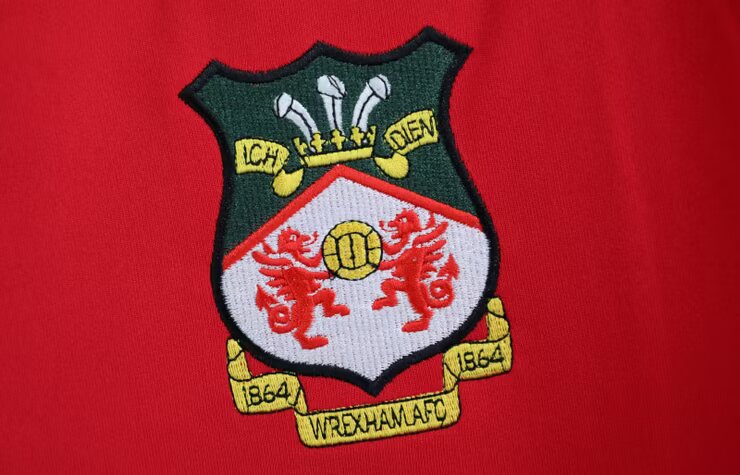
On Tuesday night, I received the ideal example of Wrexham AFC’s progress.
After the Harrogate game, my co-commentators Bill and Chay Long and I decided to have a live YouTube chat to talk about how it went. I was really looking forward to it at halftime, but not as much by the end!

My interpretation of the game was unfavourable. After all, I didn’t really see how Harrogate could get back into the game with a 2-0 lead and the half almost done. We had, quite simply, controlled possession, dominated the game, and had plenty of opportunities to score.
The Sulphurites, on the other hand, appeared incapable of harming us and lived up to their terrible home form. They achieved precisely that: their two goals were a little soft, and it was annoying to watch how quickly the game’s equilibrium shifted.
Time has allowed me to recognise their spirit, as they demonstrated genuine tenacity to win the match. But at the time, I was furious at how a team that had appeared so weak in the first half could suddenly turn the tables on us.
I thus entered the live broadcast in a grumpy state and struggled through the opening dialogues. That’s when I realised the club’s situation had changed.
These kinds of live broadcasts have been done after games in the past, and they used to be very informal. The viewers that participated would not hold back, and they were a lot of fun.
I liked the debate, and most of the time Chay and I were the ones who saw the brighter side of things. Seeing how many people were willing to accept our point of view and, as a result, often moderate their own, was very satisfying.
Last Tuesday, as I was complaining about two missed points, it occurred to me that we had completely turned around. The viewers were reminding me to maintain perspective and acknowledge that we are not able to win them all, and now it was my turn to expect more.
What a dramatic shift in the club’s atmosphere. A few years ago, all hell would have broken loose, but this team has earned the faith and trust of our fans, and we are willing to accept the frustration of a lost opportunity.
Of course, not every Wrexham supporter is serene and zen-like. Unsurprisingly, there were a lot of angry responses to the Accrington loss, given how shocking the result was. Stanley owns
Overall though, most supporters can see that we’ve come a long way in a short period of time, and our players and coaching staff have brought us great joy along the way. Even though there are still issues that require attention, we can’t help but have faith that Phil Parkinson and his group will succeed.
Since there are four promotion spots available in League Two, we don’t have to see every missed point as a catastrophe. Promotion from the National League has been attained. Our fan base has come to the realisation that: I suppose I need some perspective right now.
Both sides placed a great deal of importance on Yeovil’s final game at The Racecourse.
Wrexham needed two victories to secure the National League title, while the Glovers needed to win their final three games to avoid relegation.
Yeovil showed remarkable resilience and the occasion’s tension as the first half ended goalless. But Wrexham asserted themselves in the second half, and an hour in, Anthony Forde (shown above) opened the score with a neat finish. James Jones doubled the lead, and Paul Mullin’s well-placed header sealed a 3-0 victory. This set up the thrilling matchup with Boreham Wood, which would determine our title winner.
Yeovil won all three points from their trip to North Wales the previous season, despite some contentious circumstances. When Liam McAlinden was harshly sent off for diving into a defender in the 35th minute to try to win a header, an otherwise dull match came to life.
Despite Wrexham’s valiant ten-man effort, Town eventually capitalised on the circumstance to win 2-0.
Until MK Dons defeated us on the first day of this season, 47 games and 22 months later, Phil Parkinson had never lost a game at home before. Yeovil and Wrexham have already met in the FA Cup, but the Reds’ encounter was disappointing. The first round tie was played at Huish Park in November 2003, and to make matters worse, our humiliation was televised live.
We held off Yeovil’s pressure until Kevin Gall, who would sign with us five years later, opened the score in the 39th minute.
After the interval, the floodgates opened and the game was over as a contest after three goals in twenty minutes. Even though Chris Armstrong scored in the 88th minute, it was insufficient.

Leave a Reply